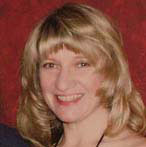Friday, July 27, 2007
Sitting Still in the Desk Chair
I've been tidying up my office since coming back from the grad school. It looked like a tornado had been in here. There were articles and books everywhere. Then, I made the mistake of sitting down. Now I don't have the energy to even keep typing.......think I'll just want to sit for a few minutes and mindlessly stare into space. Do'h.
In Christ, Tammy
Saturday, July 14, 2007
The Autism Homepage by Gary Heffner
MY LIFE: Whew! What a week it has been. The research is going full blast, the paper is starting to come together, the poster for the poster presentation is in the works, the website for the professor is coming along nicely, I’ve been trying to recruit speakers for the psychology club, attended a poster/oral presentation workshop, going to the mandatory GRE prep classes from 6 – 9 p.m., and am preparing for an interview next week. (Plus a few other things) It is like running a race that never stops. Yet, at the same time - isn't life grand! I believe so.
Our Heavenly Father gives us much if we are willing to step up to the plate and do the next right thing. How grateful I am to have enough energy and the ability to do all of these things. And with these gifts, I believe, come the responsibility of attempting to use them to the benefit of mankind and/or my fellow man whenever possible.
BOUNDARIES: However, believing that does not mean that I have no boundaries. When I was younger and before having a solid relationship with the Lord, I foolishly assumed that it was my "duty" to help everyone that requested help. I, in fact, resented other people that had boundaries and wouldn't drop everything if I thought someone else was in need. My incorrection assumption about "my duty" was benefitial to people once in a while, but detrimental to myself and more often did not bring Godly help for the other person. In retrospect, I think my ego wanted to be able to say how great I was.
Now, with more clarity and the understanding that we are children of God, I have come to accept that help is not successfully if it is MY WILL instead of HIS WILL leading the way. My life has changed substantially for the better since coming to understand this concept several years ago. Today's attempts in helping others are usually much more successful, but even the one's that aren't provide a deeper understanding of myself and the nature of others.
AUTISM: I’m excited to have a meeting with one of the professors for the autism clinic next week and will write more about that after the meeting. This may be an opportunity for me to get a professional opinion on the course I created for blackboard.
My link for you today is written by the man that trained in me in Judevine, Gary Heffner. Judevine is an awesome program available for parents, teachers, and caregivers in southern Georgia. Link: The Autism Homepage
Happy day to you. It is time to get busy! T
Friday, July 6, 2007
AUTISM IN HISTORY
"It may be hard for an egg to turn into a bird: it would be a jolly sight harder for it to learn to fly while remaining an egg. We are like eggs at present. And you cannot go on indefinitely being just an ordinary, decent egg. We must be hatched or go bad."
C. S. Lewis
Did you have a nice 4th of July? We did with the traditional evening cook-out and watching fireworks. We even lucked out with a good parking spot and didn't have to sit in traffic for hours afterward. I was surprised at the number of stores open. We went to Walmart and Home Depot to get a couple of supplies for the racing event at Barber Motor Sports Park.. (For those of you that don’t know, my family is involved in racing. In fact they are at the track right now as I am working today. It is hard to stay behind!)
SOME HISTORICAL REFERENCES TO AUTISM
The first description for autistic characteristics along with the suggestion that autism was a unique syndrome first appeared in Leo Kanner’s 1943 paper entitled, Autistic Disturbances of Affective Contact, describing eleven children who showed features different from childhood schizophrenia, mental retardation, feeble mindedness, and other frequently used terms of the era such as idiots and imbeciles. However, there is some evidence that what we know now as the autistic spectrum disorders may have existed in prior centuries.
In retrospect, especially after decades of research and the discover of additional subtypes, we can now look back at certain cases as Uta Frith did with analysis of the court records of Hugh Blair, a man that showed many symptoms of autism documented in his court case of 1747, and argue that autism could have possibly been with us for at least two hundred and fifty years or more.
Some believe that Henry Maudsley’s 1879 edition of The Pathology of the Mind, may have recorded a thirteen year old boy that had Asperger’s syndrome, but Asperger’s syndrome was not called such until it first appeared in Austrian’s physician’s Hans Asperger’s 1944 paper, autistischen psychopathen, describing four higher functioning children than those described by Kanner. Although the children that Asperger described had somewhat superior cognitive and language abilities, they also share overlapping characteristics with the children that Kanner had described.
There is also the well documented case of, Victor, “the wild boy of Aveyron” found in 1798 and described by Dr. Jean Itard. Dr. Itard created teaching methods from working with Victor and others that are “still relevant today in the education of children with autism and with other language and intellectual disabilities” (from p 202 in The History of Autism) Lorna Wing, who made Asperger’s known in the western world, has been quoted as saying, “there can be no doubt that Victor was autistic”.
In addition to recent history, at least one research report suggests that autism may even be mentioned in the folkloric heritage of several countries. There are stories of children are described as changelings; characterized by unresponsiveness, resistance to physical affection, obstreperousness, inability to express emotion, unexplained crying, rigidity, and some are unable to speak.
And the word autistic was originally used by Eugen Bleuler, who created the term “Schizophrenia” in 1911. Autism described certain aspects of schizophrenia until Kanner suggested that is was its own syndrome in 1944.

